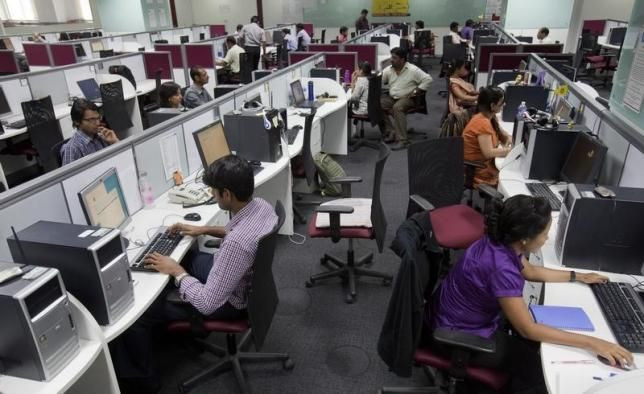AI Could Spell Trouble For Jobs Outsourced To India, The Philippines And Mexico
Artificial Intelligence (AI), computer systems that mimic human intelligence, could eliminate the need for outsourcing service jobs by U.S. corporations to low-wage countries like India, the Philippines and Mexico.
The spread of AI will bring a revolution in the workplace, which could reverse decades-long trends that have shaped the global division of labor.
First, it will tip the balance between insourcing and outsourcing/offshoring services in favor of insourcing.
Second, it will change the trade-off between globalization and localization in favor of localization.
In the pre-AI era, outsourcing, the transfer of labor-intensive tasks to third parties either at home or abroad (offshoring), became the buzzword of business strategy for large corporations seeking to improve efficiency, cut costs, speed up product development and focus on their "core competencies."
Outsourcing helped these corporations deal with the intensification of competition and its price and profit erosion.
Outsourcing sometimes differentiates between staying in business or going out of business altogether.
In the AI era, most advantages of outsourcing are diminished or even eliminated, as AI systems can perform most of the outsourced activities in-house when needed and as needed.
In addition, AI maintains and reinforces control of the entire value chain, avoiding the side effects of outsourcing.
That's bad news for low-wage countries like India, the Philippines and Mexico that have been outsourcing havens.
"There's no question that the emergence of AI will signify the repatriation of jobs from countries that deal heavily in data entry and customer service functions," Richard Gardner, CEO at Modulus, told International Business Times. "It is likely that the Philippines will be hit particularly hard."
Shashank Agarwal, a data science / AI expert in the U.S. health care space, sees the IT industry as a good candidate for the reversal of outsourcing.
"The U.S. heavily relies on outsourcing for IT services," he said. "Most of the time, these are very routine and procedural tasks, focusing more on implementation than strategy. AI can automate routine and repetitive tasks, displacing certain low-skilled jobs in outsourcing destinations."
Vinod Iyengar, head of product at ThirdAI, sees the reversal of outsourcing extending to domestic jobs.
"For example, JPMorgan's foray into developing an AI service, similar to ChatGPT, for providing investment advice marks just the beginning of a larger trend," he explained. "Financial institutions are increasingly recognizing the potential of large language models (LLMs) in the form of chatbots to expand their customer base and enhance accessibility."
He sees this shift as a solution to the long-standing challenge of limited resources. "As more institutions embrace LLM-based chatbots, we can anticipate a broader transformation in the financial industry, empowering institutions to offer personalized and scalable investment guidance to a wider range of clients," he added.
Still, Gardner doesn't see a one-to-one transition from outsourcing to insourcing.
"When jobs which have previously been outsourced are replaced by AI, the 'replacement jobs' in the United States are likely to be in the technology sector, as there will need to be oversight of AI operations, as well as in the regulation and compliance of those technologies," he explained.
He advises corporations to add the utilization of AI to their toolbox, given its enhanced role soon.
"Those skilled in its use will be most likely to thrive," he said.
Iyengar calls for caution to ensure the responsible deployment of AI systems so as to mitigate these risks and maintain customer trust.
"For any technology to thrive and reach its full potential, it requires adequate time and training to be invested in its development and implementation," he added. "Only time will reveal the areas in which AI will bring significant changes and establish its dominance."

© Copyright IBTimes 2025. All rights reserved.






















